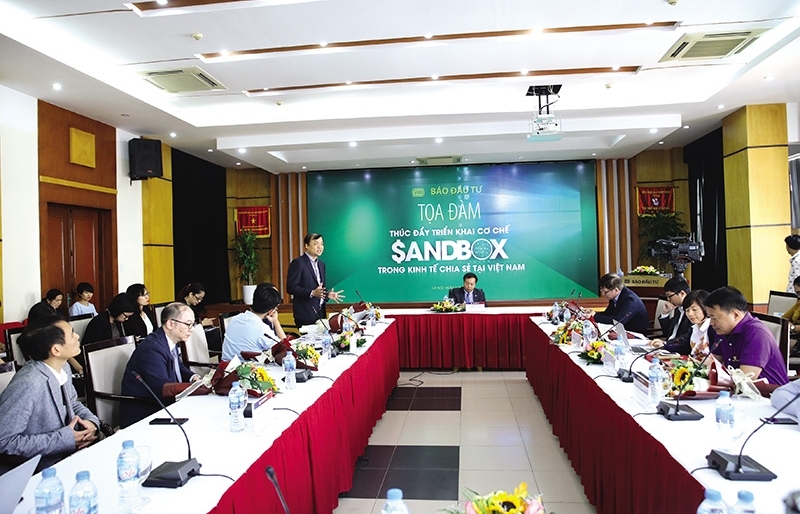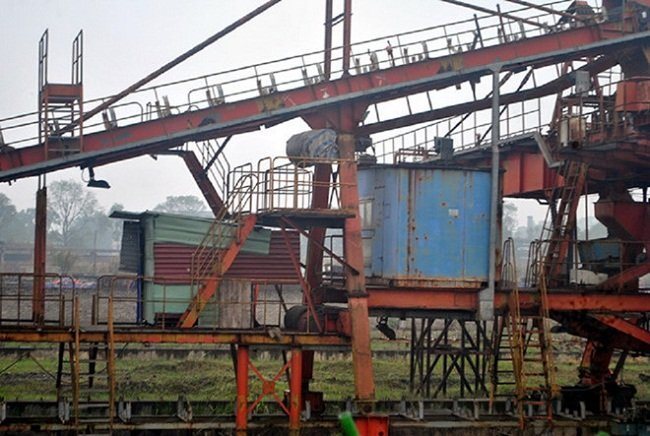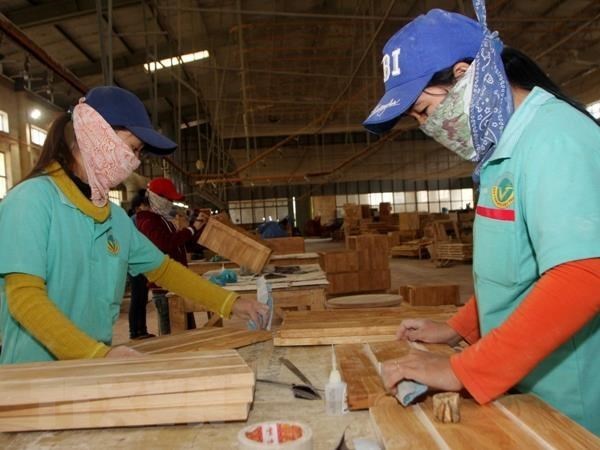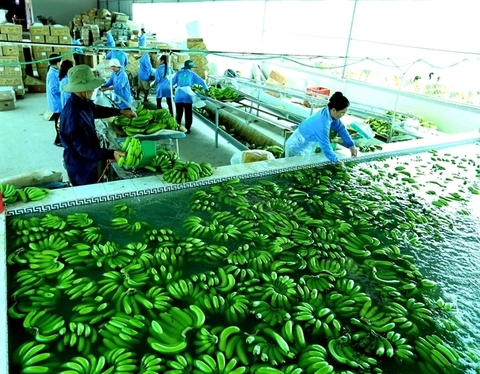- © Copyright of Vietnamnet Global.
- Tel: 024 3772 7988 Fax: (024) 37722734
- Email: evnn@vietnamnet.vn
SMEs
Update news SMEs
WeWork expands in Vietnam
 Co-working space provider WeWork is expanding in Vietnam by opening two more offices in Ho Chi Minh City.
Co-working space provider WeWork is expanding in Vietnam by opening two more offices in Ho Chi Minh City.
Appeals for sturdy sandbox direction
 The new economic models of transportation, lodging services, fintech, energy, and digital entertainment are expected to drive the sharing economy in Vietnam if regulatory sandboxes become more readily available.
The new economic models of transportation, lodging services, fintech, energy, and digital entertainment are expected to drive the sharing economy in Vietnam if regulatory sandboxes become more readily available.
In Vietnam, many businesses close after several years of development
 Businesses complain they find it difficult to access loans, while banks say many businesses don’t have feasible business plans and cannot use capital effectively.
Businesses complain they find it difficult to access loans, while banks say many businesses don’t have feasible business plans and cannot use capital effectively.
Taxes, loan interest rates burden VN enterprises
 While the EVFTA and CPTPP have paved the way for Vietnamese enterprises to penetrate the world market, high taxes and interest rates have blocked their path.
While the EVFTA and CPTPP have paved the way for Vietnamese enterprises to penetrate the world market, high taxes and interest rates have blocked their path.
Finance Ministry proposes tax cut for small firms
 The Ministry of Finance (MoF) is proposing a regulation that exempts micro and small enterprises from corporate income tax for two years after they have sufficient income subject to taxation.
The Ministry of Finance (MoF) is proposing a regulation that exempts micro and small enterprises from corporate income tax for two years after they have sufficient income subject to taxation.
Trade Ministry transfers 11 debt-laden megaprojects
 The Ministry of Industry and Trade has transferred the jurisdiction over State capital at 11 out of 12 loss-making megaprojects to the Commission for the Management of State Capital at Enterprises.
The Ministry of Industry and Trade has transferred the jurisdiction over State capital at 11 out of 12 loss-making megaprojects to the Commission for the Management of State Capital at Enterprises.
Local firms need to improve capacity when joining EVFTA
 Improving corporate governance capacity is a major challenge for businesses, especially small-and-medium sized enterprises when joining the EVFTA, requiring the Government to have policies and mechanisms to facilitate their operation.
Improving corporate governance capacity is a major challenge for businesses, especially small-and-medium sized enterprises when joining the EVFTA, requiring the Government to have policies and mechanisms to facilitate their operation.
Linking SMEs with necessary financing
 Supply chain finance is gaining prominence as the global trade instability brings attention to Vietnam and domestic companies seek opportunities to partner with multinational buyers.
Supply chain finance is gaining prominence as the global trade instability brings attention to Vietnam and domestic companies seek opportunities to partner with multinational buyers.
Vietnam to raise IPO standards to minimize risks for investors
 According to the government’s report, since more than 81 percent of the country’s public companies have charter capital of over VND30 billion, the revision thus will affect only a minority of firms.
According to the government’s report, since more than 81 percent of the country’s public companies have charter capital of over VND30 billion, the revision thus will affect only a minority of firms.
Vietnamese SMEs shown how to enter global supply chains
 Vietnam is among the top countries attracting FDI in the Asia-Pacific region, but the rate of domestic SMEs participating in the value chains of foreign-invested companies is rather low.
Vietnam is among the top countries attracting FDI in the Asia-Pacific region, but the rate of domestic SMEs participating in the value chains of foreign-invested companies is rather low.
Banks now targeting SMEs for disbursement
 Instead of turning their back to small and medium-sized enterprises (SMEs) as they did in the past, commercial banks are approaching enterprises despite problems in accounting and collateral.
Instead of turning their back to small and medium-sized enterprises (SMEs) as they did in the past, commercial banks are approaching enterprises despite problems in accounting and collateral.
VN Ministry of Industry and Trade releases 2018 import-export report
The Ministry of Industry and Trade held a ceremony on Wednesday in Da Nang to release the Viet Nam Import-Export Report 2018.
Component suppliers to Japan enterprises? Still a distant goal
Only a few Vietnamese enterprises have become vendors that supply components and accessories to multinationals, though Vietnam has vowed to develop supporting industries.
Goal of 1 million businesses may be unattainable: economics committee
The National Assembly’s economics committee warned that the target of developing 1 million businesses by 2020 may be unattainable, especially as barriers hindering businesses still exist and the number of dissolved businesses is on the rise.
E-commerce helps SMEs boost online exports
VietNamNet Bridge - Vietnamese SMEs are using e-commerce to export products at reasonable costs.
Fintechs causing big changes in financial market
VietNamNet Bridge - Vietnam’s small and medium enterprises (SMEs) are expected to be the key clients and biggest beneficiaries from financial apps provided by fintechs.
Modern business: the age of chatbot
Chatbot, a computer program which conducts conversations via auditory or textual methods, an important product of artificial intelligence, is being used widely by Vietnamese businesses.
Vietnam to encourage informal sector to pay tax
VietNamNet Bridge - The government needs to take action to reduce the size of the informal economic sector, economists say.
Businesses want to remain small
VietNamNet Bridge - Complicated administrative procedures and weak financial and management capability are why business households do not want to become enterprises.
SMEs pick up short end of supermarket stick
Small and medium sized firms are being crushed and elbowed out in the increasingly fierce competition to become a supermarket supplier.



















